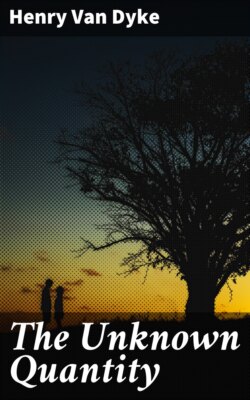Читать книгу The Unknown Quantity - Henry Van Dyke - Страница 7
На сайте Литреса книга снята с продажи.
I
ОглавлениеTable of Contents
My father, Marcel Thibault, was an honest man, strong in the heart, strong in the arms, but, in the conscience,—well, he had his little weaknesses, like the rest of us. You see his father, the old Thibault lived in the days when there was no lighthouse here, and wrecking was the chief trade of this coast.
It is a cruel trade, m'sieu'—to live by the misfortune of others. No one can be really happy who lives by such a trade as that. But my father—he was born under that influence; and all the time he was a boy he heard always people talking of what the sea might bring to them, clothes and furniture, and all kinds of precious things—and never a thought of what the sea might take away from the other people who were shipwrecked and drowned. So what wonder is it that my father grew up with weak places and holes in his conscience?
But my mother, Nataline Fortin—ah, m'sieu', she was a straight soul, for sure—clean white, like a wild swan! I suppose she was not a saint. She was too fond of singing and dancing for that. But she was a good woman, and nothing could make her happy that came from the misery of another person. Her idea of goodness was like this light in the lantern above us—something faithful and steady that warns people away from shipwreck and danger.
Well, it happened one day, about this time forty-eight years ago, just before I was ready to be born, my father had to go up to the village of La Trinité on a matter of business. He was coming back in his boat at evening, with his sail up, and perfectly easy in his mind—though it was after sunset—because he knew that my mother was entirely capable of kindling the light and taking care of it in his absence. The wind was moderate, and the sea gentle. He had passed the Point du Caribou about two miles, when suddenly he felt his boat strike against something in the shadow.
He knew it could not be a rock. There was no hardness, no grating sound. He supposed it might be a tree floating in the water. But when he looked over the side of the boat, he saw it was the body of a dead man.
The face was bloated and blue, as if the man had been drowned for some days. The clothing was fine, showing that he must have been a person of quality; but it was disarranged and torn, as if he had passed through a struggle to his death. The hands, puffed and shapeless, floated on the water, as if to balance the body. They seemed almost to move in an effort to keep the body afloat. And on the little finger of the left hand there was a great ring of gold with a red stone set in it, like a live coal of fire.
When my father saw this ring a passion of covetousness leaped upon him.
"It is a thing of price," he said, "and the sea has brought it to me for the heritage of my unborn child. What good is a ring to a dead man? But for my baby it will be a fortune."
So he luffed the boat, and reached out with his oar, and pulled the body near to him, and took the cold, stiff hand into his own. He tugged at the ring, but it would not come off. The finger was swollen and hard, and no effort that he could make served to dislodge the ring.
Then my father grew angry, because the dead man seemed to withhold from him the bounty of the sea. He laid the hand across the gunwale of the boat, and, taking up the axe that lay beside him, with a single blow he chopped the little finger from the hand.
The body of the dead man swung away from the boat, turned on its side, lifting its crippled left hand into the air, and sank beneath the water. My father laid the finger with the ring upon it under the thwart, and sailed on, wishing that the boat would go faster. But the wind was light, and before he came to the island it was already dark, and a white creeping fog, very thin and full of moonlight, was spread over the sea like a shroud.
As he went up the path to the house he was trying to pull off the ring. At last it came loose in his hand; and the red stone was as bright as a big star on the edge of the sky, and the gold was heavy in his palm. So he hid the ring in his vest.
But the finger he dropped in a cluster of blue-berry bushes not far from the path. And he came into the house with a load of joy and trouble on his soul; for he knew that it is wicked to maim the dead, but he thought also of the value of the ring.
